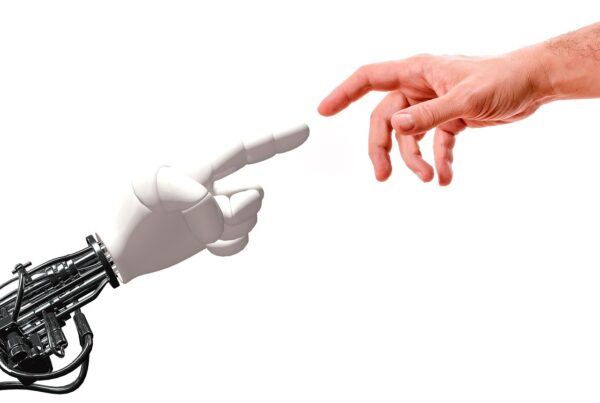#AI@Work: Too Big to Fail?
DEC went from industry giant to gone. The myth that better technology is always the way to win in the market space was debunked. At one time DEC had the best processor, the best search engine and the best computers. Engineering was on their side, but timing was not. By the time DEC had the EXP chip, Intel had the chip market. DEC created the VAX but held on to the VAX too long. DEC looked at the Apple II but missed the opportunity to innovate. When it finally came to market with a PC it was years late and overpriced. Years later, DEC cut a deal with Apple to put the Apple OS on all DEC computers, but it never happened. The war between Silicon Valley and Boston’s Rte. 128 with DEC, DG and Wang had yet to play out. Culture wins out in the end, again. Who was more agile? Silicon Valley had thousands of little startups and Boston had a few big self-contained firms . Then of course there was the attitude “We’re too big to fail.”
DEC was not the only large computer company to fail. Neighbors on Boston’s high-tech highway, Wang Laboratories succumbed to the rapid changes in high tech. Thirty-six-year-old CEO Fred Wang famously said billion-dollar companies don’t disappear overnight. Then that’s exactly what Wang did. Wang was a family company. It went public but kept the leadership in the family.
During the 1970s Wang led innovation in the computer industry and was primarily responsible for putting computers into offices. A computer in the office in the early 1970s was rare. The Wang 2200 was widely used in laboratories and healthcare. It was aggressively marketed and hardwired. Wang made two decisions that made it less agile: Wang decided o concentrate on hardware, not software, and to focus on word processors and minicomputers, not PCs .
Wang did shift product lines from calculators to word processors to computers, and in the end, went after IBM and the high end of the market. However, although leadership chased IBM, lack of sales and customer training limited Wang’s reach. When Microsoft and the PC came out, no one needed a minicomputer to do word processing and the market collapsed. Egos got in the way of leadership. An Wang, the company’s founder, refused to develop an IBM-compatible PC because he didn’t like IBM. Wang wasn’t listening to the market and wasn’t able to adjust. Although death took a while, Wang filed for bankruptcy in 1992. Wang stock traded for $42 and dropped to $.50. Wang failed to listen to customers. Wang was a closed organization that had isolated leadership. They were unable to respond to market changes with a new direction for the company. Wang hung on to a culture of proprietary technology when the world was embracing open systems. Other companies, a bit more agile, like HP, IBM and Apple were able to survive but not without struggle and reorganization.
#AI@Work, #WFH, #Virtual Touchpoints, #ThePajamaEffect, #The Visual Connection, #BobbeGB, #BobbeBaggio, #Touchpoints, #Remote Workplace, #WorkFromHome, #PJEffect, #LinkedInNewsLive




